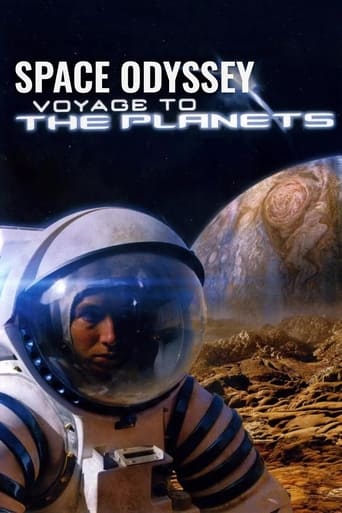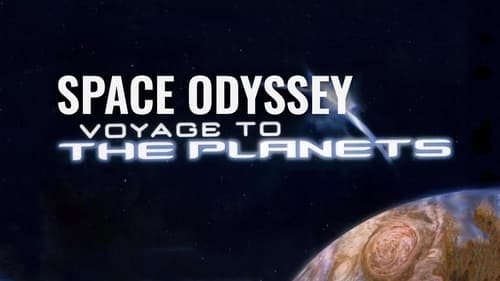Carlos Barton
When I look back at sci-fi documentaries of the last decade, I often think of this BBC-produced two-parter from 2004, about a cluster of astronauts setting off on, in their universe, the greatest exploration mission in human history, a trip to the edge of the solar system on the mile-long, nuclear-powered Pegasus. They encounter the infinite wonders of out region of space, landing on Mars and Venus, inspecting the rings of Saturn. The astronauts even go to the surface of Pluto (VTTP was made before it was demoted from planet status)! The journey gets inevitably sad in some places, with the loss of several probes and one of the astronauts to lymphoma.But what makes the program so special is that it tries to be as realistic as possible, with endlessly fascinating info being exchanged with the viewers along the way and manages to add the dangers of space travel e.g. debris, radiation sickness, yet without making the whole thing feel so depressing.The CGI used by the BBC plus the narration of David Suchet aka. Poirot can only add to the outstanding quality of VTTP and the John Williams-esque music, especially that used for the intro, is mindblowing to listen to against the images of the planets. In some people it will shed tears. So will this documentary. An underrated masterpiece of science- fiction that would leave Arthur C Clarke grinning from ear to ear if he were here to see it.
drystyx
This movie is an attempt to give a realistic portrayal of an extravagant space voyage. Instead of the usual small shuttle, we have a very large station.It may have been a good idea. But no one will ever know, unless it gets another edit. This is because the production value is probably the worst ever.I'm reminded of my days in a studio for free public access, and speaking with the technicians there. The common joke was "sound people don't know what the Hell they're doing." And here is a prime example.The director painstakingly tries for realism, and he gives a realistic look, but the cost is too great. You can't understand a word that is spoken in this poor sound environment. True, that's how NASA sounds on the TV set, but that's why few people bother to watch real live NASA space coverage, because it is impossible to know what people are saying.And anyone who avers that he or she does understand the dialog is a liar. Fact.I watched the show, but still have no idea what was ever going on. None of the actors could enunciate, and that is suspicious. Either they were poorly selected, or the sound crew was the worst ever. Since none of the actors were intelligible, that makes the sound crew look almost certainly to be the guilty party.The attempt for realism gave it an atmosphere of reality. This is what the director obviously intended, and the director was successful.Too bad you need a scorecard to follow along with what is happening. It is a poorly produced movie.
DUCK_of_DEATH
Jeez, It's been nearly 40 years since we landed on the moon, even so, the people who made this "documentary" still managed to forget that other planets are a *long* way off--so long that light takes time to travel between here and there. It takes light (and radio communications) 1.5 seconds just to get from the Moon to the Earth, 2 minutes from Venus, 4 minutes from Mars, 36 from Jupiter, and a whopping 72 minutes from Saturn. Yet Mission Control was watching and managing everything in real-time. Wrong, wrong, wrong! The whole premise for this flick was flawed, didn't anyone take physics in high school? How could the science advisor's have made such a huge mistake??!!! Waste of good special effects budget. Better luck next time, BBC.
ubercommando
An excellent series, part drama, part documentary. Just a point of information about the communication lag mentioned by a previous poster. They did refer to a communication delay, but of course they edited things out to make the story flow faster. At one point on Mars, mission control detect a huge dust storm the landing crew can't detect yet and warn them with a message "dust storm on its way 6 minutes behind this message" which illustrates the time lag and just to clear up another point made, the lander on the comet isn't automatically controlled from Earth, but by the crew on the Pegasus. As for the Pegasus, it surely must be one of the best spaceships ever designed for a sci-fi show. A cross between the Discovery and the Leonov from the 2001/2010 saga.



